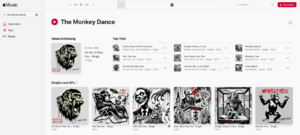- Palindrome: A word, phrase, number, or other sequence of characters which reads the same backward as forward, such as madam or racecar.
- Palindrome: A word, phrase, number, or other sequence of characters which reads the same backward or forward.
- Paradox: A statement or proposition that, despite sound reasoning from acceptable premises, leads to a conclusion that seems senseless, logically unacceptable, or self-contradictory.
- Paralinguistics: The aspect of communication that involves nonverbal cues such as tone of voice, loudness, inflection, and pitch.
- Paraphrase: A rewording of something written or spoken by someone else.
- Parenthetical: Relating to or inserted as a parenthesis.
- Parse: Analyze (a sentence) into its parts and describe their syntactic roles.
- Participle: A word formed from a verb and used as an adjective or a noun. In English, participles are also used to make compound verb forms (e.g., is going, has been).
- Passive voice: The voice used to indicate that the grammatical subject of the verb is the recipient of the action denoted by the verb.
- Pastiche: An artistic work in a style that imitates that of another work, artist, or period.
- Pedagogy: The method and practice of teaching, especially as an academic subject or theoretical concept.
- Periphrasis: The use of indirect and circumlocutory speech or writing.
- Philology: The study of language in written historical sources; it is a combination of literary criticism, history, and linguistics.
- Phoneme: Any of the perceptually distinct units of sound in a specified language that distinguish one word from another.
- Phonetics: The study and classification of speech sounds.
- Phonology: The branch of linguistics concerned with the systematic organization of sounds in languages.
- Phrasal verb: A verb that is made up of a main verb together with an adverb or a preposition, or both, typically with a meaning different from the original verb (e.g., give up, look after).
- Plagiarism: The practice of taking someone else's work or ideas and passing them off as one's own.
- Pleonasm: The use of more words than are necessary to convey meaning (e.g., see with one's eyes), either as a fault of style or for emphasis.
- Plosive: A type of consonant sound that is made by stopping airflow using the lips, teeth, or palate, followed by a sudden release of air.
- Plural: The form of a word that typically denotes more than one person, thing, or instance.
- Polyglot: Knowing or using several languages.
- Polyphony: The style of simultaneously combining a number of parts, each forming an individual melody and harmonizing with each other.
- Polysemy: The coexistence of many possible meanings for a word or phrase.
- Portmanteau: A word blending the sounds and combining the meanings of two others, for example, brunch (from breakfast and lunch) or motel (from motor and hotel).
- Postulate: Suggest or assume the existence, fact, or truth of (something) as a basis for reasoning, discussion, or belief.
- Pragmatics: The branch of linguistics dealing with language in use and the contexts in which it is used, including such matters as dealing with its users and its uses in speech acts, conversational implicature, talk in interaction, and other non-structural forms of language.
- Predicate: The part of a sentence or clause containing a verb and stating something about the subject (e.g., went home in John went home).
- Preposition: A word governing, and usually preceding, a noun or pronoun and expressing a relation to another word or element in the clause.
- Prescriptivism: The attitude or belief that one variety of a language is superior to others and should be promoted as such.
- Pronoun: A word that can function by itself as a noun phrase and that refers either to the participants in the discourse (e.g., I, you) or to someone or something mentioned elsewhere in the discourse (e.g., she, it, this).
- Pronunciation: The way in which a word is pronounced.
- Proposition: A statement or assertion that expresses a judgment or opinion.
- Prosody: The patterns of rhythm and sound used in poetry.
- Proverb: A short, well-known pithy saying, stating a general truth or piece of advice.
- Proxemics: The branch of knowledge that deals with the amount of space that people feel it necessary to set between themselves and others.
- Pun: A joke exploiting the different possible meanings of a word or the fact that there are words that sound alike but have different meanings.
- Punctuation: The marks, such as period, comma, and parentheses, used in writing to separate sentences and their elements and to clarify meaning.
|





































































